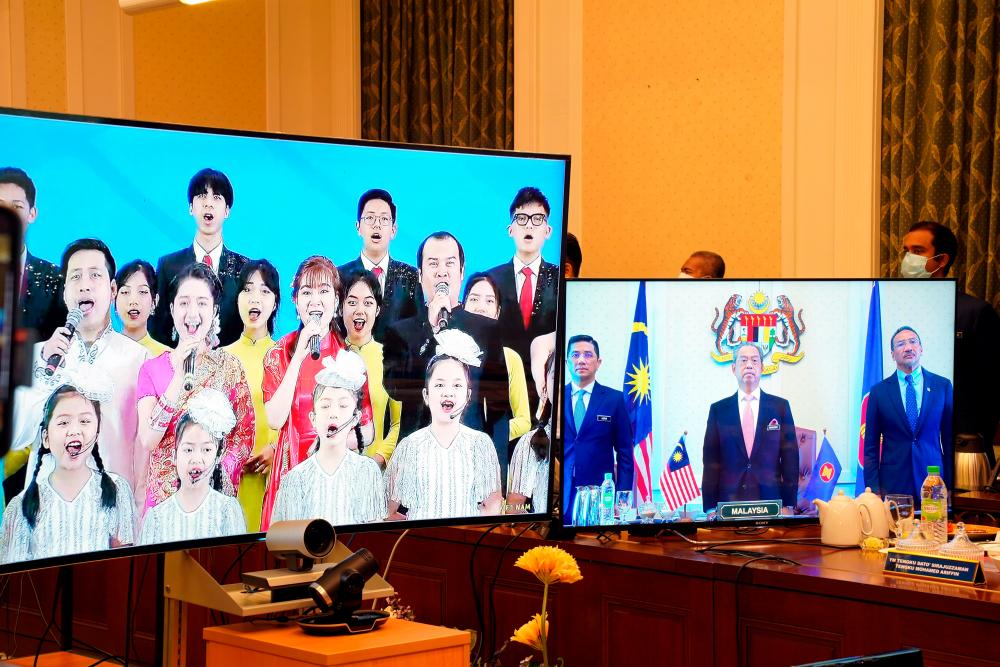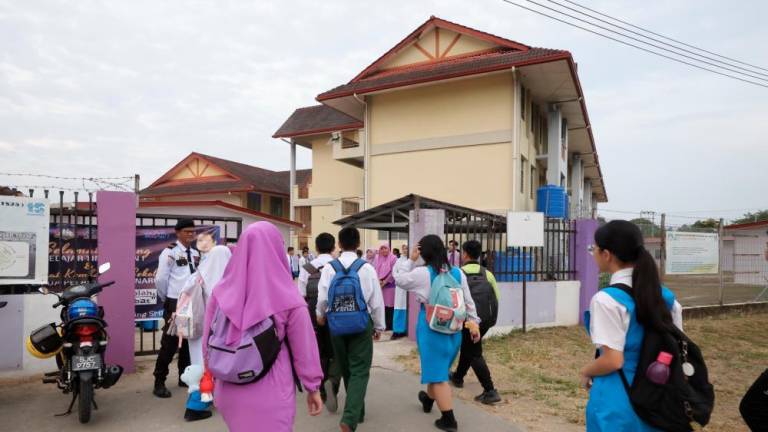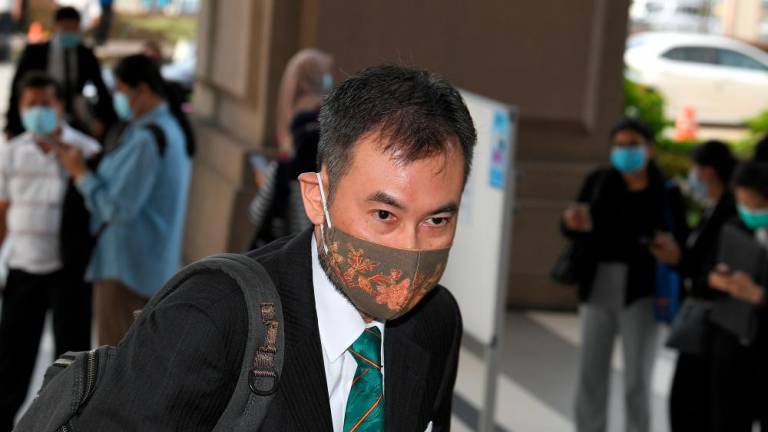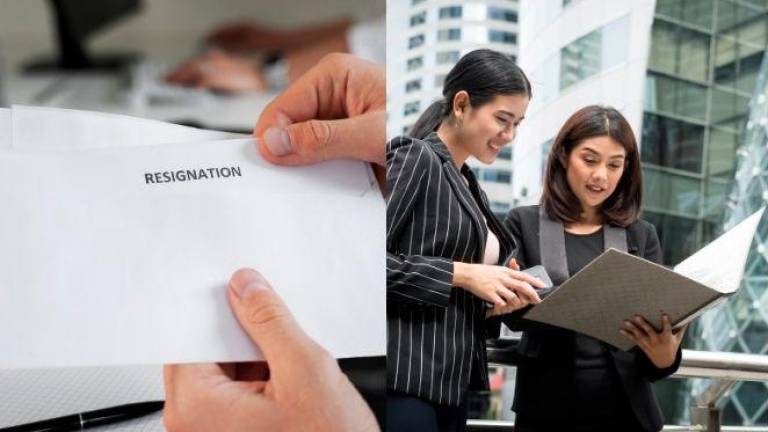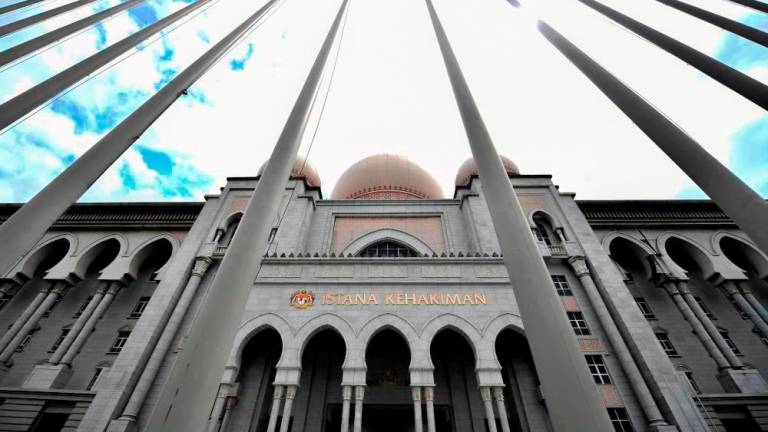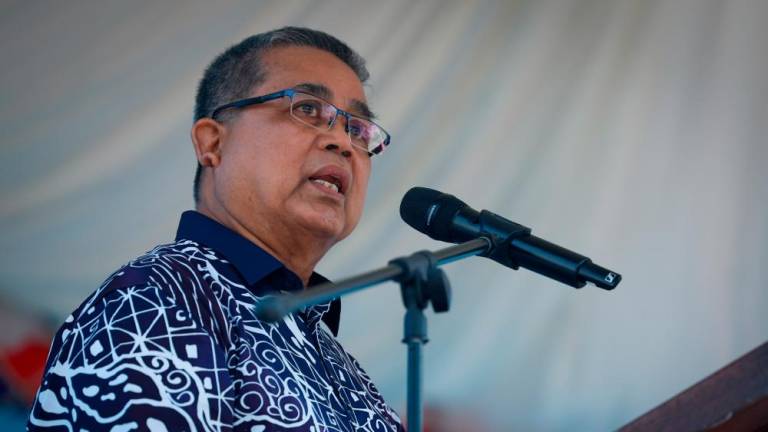KUALA LUMPUR: Asean leaders today adopted the Asean Leaders’ Vision Statement on A Cohesive and Responsive Asean: Rising Above Challenges And Sustaining Growth, which, among others, recognised the social and economic ramifications of the Covid-19 pandemic.
They said this includes disrupted production and supply chains, demand shocks, decreased trade and investment, financial vulnerabilities, high unemployment, growing inequality, and access to fewer resources and opportunities for vulnerable groups.
The leaders from the 10 Member States adopted the statement at the 36th Asean Summit, held virtually, hosted by Asean Chair 2020, Vietnam, from Hanoi.
Malaysia’s delegation was led by Prime Minister Tan Sri Muhyiddin Yassin who joined the Summit, themed “Cohesive and Responsive Asean”, from Putrajaya.
Through the document, the leaders reaffirmed strong commitment to alleviating the adverse impact of the Covid-19 pandemic on people’s livelihood, societies and economies, among others, through the implementation of a comprehensive recovery plan.
They also agreed to cooperate closely in strengthening the social safety net for the peoples, preventing social disruption and instability in the unprecedented times of Covid-19, by designing and implementing risk-informed and shock-responsive social protection systems to reduce the vulnerabilities of at-risk populations, especially women and children.
In the document, the leaders also further reaffirmed the importance of maintaining and promoting peace, security, stability, safety, and freedom of navigation and over-flight above the South China Sea, as well as upholding international law, including the United Nations Convention on the Law of the Sea (UNCLOS), in the South China Sea.
They also agreed to work actively towards the full and effective implementation of the 2002 Declaration on the Conduct of Parties in the South China Sea (DOC) in its entirety and the early conclusion of an effective and substantive Code of Conduct in the South China Sea (COC), consistent with international law, including the 1982 UNCLOS.
They further stressed the importance of non-militarisation and self-restraint in the conduct of activities that would complicate or escalate disputes and affect peace and stability, and avoid actions that may further complicate the situation.
The leaders also agreed to advance practical defence cooperation among the Asean Member States and between Asean and its external partners under the frameworks of Asean Defence Ministers’ Meeting (ADMM) and Asean Defence Ministers’ Meeting Plus (ADMM-Plus) and continue to strengthen the Asean Regional Forum (ARF).
Asean will also, among others, intensify maritime cooperation in promoting maritime security, safety and freedom of navigation and over-flight, addressing transnational crime at sea, creating a conducive environment for peaceful settlement of disputes, ensuring maritime sustainability and providing humanitarian assistance to persons and vessels in distress at sea.
They will also strengthen Asean’s capacity to address traditional and non-traditional security issues in an effective and timely manner, including terrorism, violent extremism and transnational crimes, as well as the implementation of additional measures to respond to new emerging issues.
Meanwhile, the 10 leaders of the regional grouping also agreed to sustain the momentum of Asean community-building and be forward-looking in charting the continuing development of Asean beyond 2025.
They agreed to, among others, strengthen Asean unity, solidarity and centrality by promoting lasting peace, security and stability, sustainable development and inclusive economic growth, shared prosperity and social progress in the region.
They also agreed to dedicate utmost efforts to conclude a modern, comprehensive, high quality, and mutually beneficial Regional Comprehensive Economic Partnership (RCEP) agreement and its signing in 2020; and further promote equitable development across the Asean Community by aligning sub-regional growth, including in the Mekong area.
The leaders also agreed to enhance the role of women of Asean in the maintenance and promotion of peace, security and development in commemoration of the 25th anniversary of the Beijing Declaration and Platform for Action, and the 20th anniversary of the first United Nation Security Council Resolution (1325) on women, peace and security.
Meanwhile, to address the issues of food safety, food security and agricultural productivity, the leaders urged Member States to work more closely in promoting sustainable agriculture, aquaculture and fisheries.
They agreed to strengthen Asean’s capacity to respond to the adverse effects of climate change through the sharing of information and best practices, including from traditional knowledge.
Founded in 1967, Asean comprises 10 countries – Brunei Darussalam, Cambodia, Indonesia, Laos, Malaysia, Myanmar, Singapore, Thailand, the Philippines, and Vietnam. — Bernama



